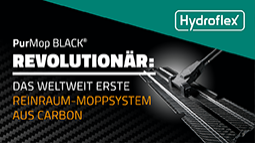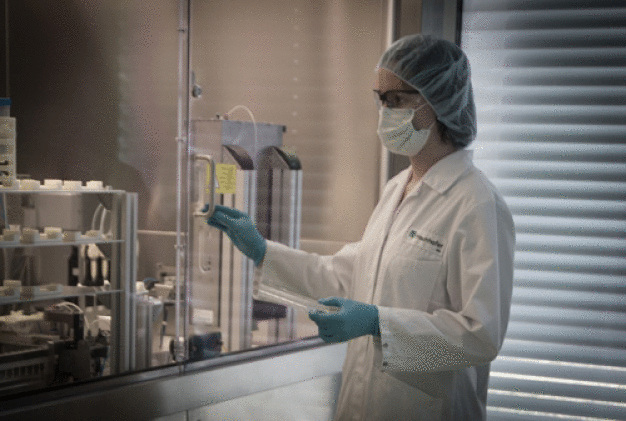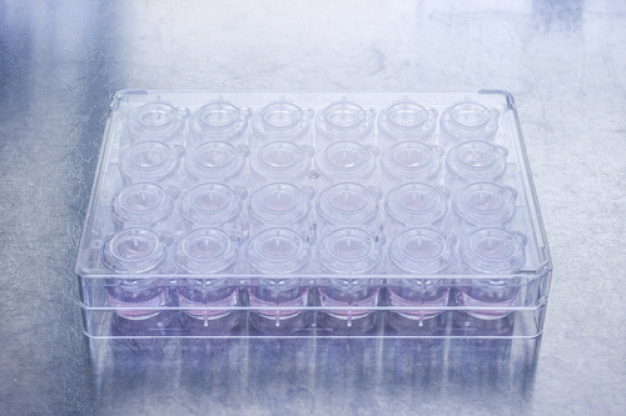- R+D & Community of Interest
If Machines Could Smell ...
Fraunhofer IPA drives Biological Transformation with an innovative platform
What, if robots could smell? Sniffing explosives at the airport, diagnosing diseases based on a patient’s breath, locating gas leaks and much more? As part of its lighthouse topic “Biological Transformation“, the Fraunhofer Institute for Manufacturing Engineering and Automation IPA in Stuttgart is now increasingly connecting biological and technical systems. A new plat- form technology is developed to automatically manufacture cell-based sensors and make them economically usable.
For the economical use of biological sensors, Fraunhofer IPA is developing a technology that automatically produces cell-based biosensors. Such sensors could then give machines, for example, a sense of smell. The platform is initially validated on a product of the Californian start-up Koniku. However, it will later also be used for other applications. IPA project manager Martin Thoma sums up the innovation: “We are basically developing a generic tool that will enable cell-based biological sensors for industrial use in the medium term.“ Biology and technology merge.
The project is supported by the Baden-Württemberg Ministry of Economic Affairs, among others. With biointelligent products and the associated production technologies, new value creation potentials can emerge for the innovation area and industrial location of Baden-Württemberg. The project aims to realize them for the country’s economy.
In order to enable the targeted development of an economically usable product, Fraunhofer IPA will develop a screening process for receptor selection and reliable automated production of so-called transfected cells, i.e. cells in which foreign DNA or RNA is integrated.
The US-company Koniku has been cultivating such cells for several years now. Olfactory receptors are introduced on small autonomous optical selection units by Koniku. The cells can be kept alive and are functional for an extended period of time to detect tiny particles from the environment. However, there are still many unanswered questions in this field of research.
To determine the right olfactory receptor for a specific application, several thousand receptors and their combination must be screened. For this process to become eco-nomical, a platform is needed that makes it possible to automatically modify cells, i.e. transfect them, and then examine them for their specific reaction to smells and tastes.
With such a transfection and screening platform, it would be possible to modify the cells very quickly for different olfactory stimuli and thus to open up other areas of application, such as medical diagnostics. “I am particularly excited about being able to deploy the Konikore in every home in a few years,“ says Osh Agabi. Founder and CEO of Koniku Inc. “A solution which can help people detect or screen disease at the earliest stages, naturally some hurdles remain to accomplish this goal nevertheless, step by step we are moving closer to this reality. The partnership with Fraunhofer IPA is another key milestone laid in this journey.“
![]()
Fraunhofer-Institut für Produktionstechnik und Automatisierung IPA
Nobelstraße 12
70569 Stuttgart
Germany
Phone: +49 711 970 1667
email: joerg-dieter.walz@ipa.fraunhofer.de
Internet: http://www.ipa.fraunhofer.de










